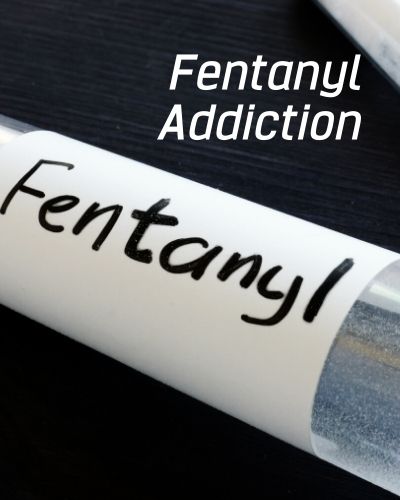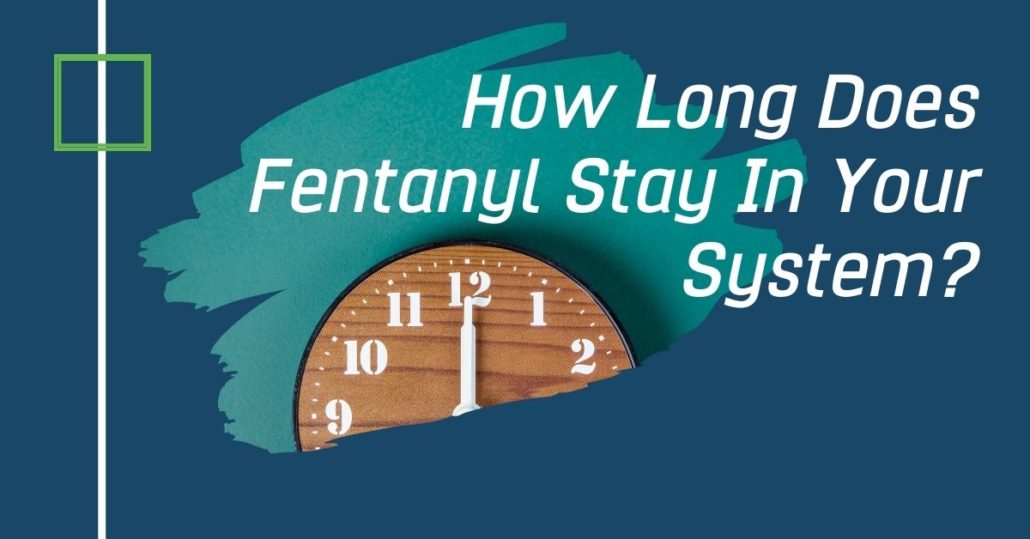What is Fentanyl?
Fentanyl is a potent synthetic opioid analgesic that is similar to morphine but is 50 to 100 times more powerful. It is a Schedule II controlled substance [1], and it is typically used to treat patients with severe pain or to manage pain after surgery. It is also sometimes used to treat patients with chronic pain who are physically tolerant to other opioids. In its prescription form, fentanyl is known by such names as Duragesic, Actiq, and Sublimaze. According to the National Institute of Health (NIH) [2], fentanyl may be habit-forming. Taking certain medications with fentanyl may increase the risk of developing severe or life-threatening breathing problems, sedation, or coma.
Most recent cases of a fentanyl overdose and death in the U.S. are linked to illegally made fentanyl. It is sold through illegal drug markets for its heroin-like effect. It is often mixed with heroin and/or cocaine as a combination product—with or without the user’s knowledge—to increase its euphoric effects. According to the Center for Disease Control and Prevention (CDC) [3], rates of overdose deaths involving fentanyl and fentanyl analogs (carfentanil) increased by over 16% from 2018 to 2019. More than 36,000 people died from overdoses involving synthetic opioids, including fentanyl, in 2019.

“How long does fentanyl stay in your system? ” is a question that many misusers of the drug may have. Since fentanyl can be administered in so many different ways, the administration method determines how long the effects last and how long it may stay in your system. When someone who suffers from an addiction to this drug suddenly stops using it, fentanyl withdrawal symptoms can occur. It is important to remember that recovery from fentanyl addiction takes much more than simply ending drug use. The underlying causes of the addiction and the mental illness from the addiction itself must be addressed for the best chances of a successful recovery.

Get Your Life Back
Find Hope & Recovery. Get Safe Comfortable Detox, Addiction Rehab & Mental Health Dual Diagnosis High-Quality Care at the We Level Up Treatment Centers Network.
Hotline (877) 378-4154Why Do People Take Fentanyl?
Fentanyl is used because it produces a stronger high than other opioids. The fentanyl sold illegally is a powder, a liquid, a spray, or a pill. Some substance abusers use fentanyl without knowing it because it is mixed into other drugs. This can include heroin, cocaine, methamphetamine, and MDMA. Very little of the drug is needed to produce the desired effects. People using other drugs may not realize fentanyl is laced into it. They may be taking a stronger dose that will lead to an overdose. Because of this uncertainty, many people who misuse opioids now do “test doses” in hopes that they will be able to tell if the drug is laced with fentanyl.
Is Fentanyl Addictive?
Like heroin, morphine, and other opioid drugs, fentanyl works by binding to the body’s opioid receptors, which are found in areas of the brain that control pain and emotions. After taking opioids many times, the brain adapts to the drug, diminishing its sensitivity, making it hard to feel pleasure from anything besides the drug. When people become addicted, drug-seeking and drug use take over their lives.

As mentioned above, fentanyl is approximately 50x more potent than heroin and 100x more potent than morphine. Due to the increased potency, all of the risks of using opioids are amplified when it comes to fentanyl including the potential for addiction. The greater euphoric effects and risk of developing a significant physical dependence both contribute to the reality of how addictive fentanyl is: highly addictive.
For recreational users, even just a couple of milligrams of this opioid can be fatal. There are many illegal versions of it circulating in the streets, mixed with various substances that interact in dangerous ways. Called non-pharmaceutical fentanyl (NPF), this drug is produced in makeshift labs and is often cut with cocaine or heroin.
Even with prescription use, fentanyl can cause seizures, respiratory failure, coma, and death. One of the major reasons Fentanyl deaths are rising is how quickly users die from it, well before most emergency medical personnel can administer successful treatment, often an injection of naloxone. In addition, the effect that fentanyl has on the muscles of the abdomen and chest often makes it difficult for first responders to administer CPR.
Get Help. Get Better. Get Your Life Back.
Searching for Accredited Drug & Alcohol Rehab Centers Near You? Or Mental Health Support?
Even if you have failed previously, relapsed, or are in a difficult crisis, we stand ready to support you. Our trusted behavioral health specialists will not give up on you. Call us when you feel ready or want someone to speak to about therapy alternatives to change your life. Even if we cannot assist you, we will lead you wherever you can get support. There is no obligation. Call our hotline today.
FREE Addiction Hotline – Call 24/7Fentanyl Withdrawal
Although fentanyl is used and prescribed in medical settings, it is also diverted for street use. When purchased on the streets, fentanyl may be called “china girl,” “china white,” “china town,” or “apache.” The effects of fentanyl are similar to those of other opioids, however, they are far more intense. It goes without saying that it is difficult to quit Fentanyl without proper help.
Fentanyl produces euphoric effects, which is what pushes people to start abusing the drug in the first place. It makes the user feel good. That’s why many people take it recreationally, not knowing the risks. And if a person is already addicted, attempting to quit without proper treatment will result in fentanyl withdrawal.
Fentanyl Withdrawal Symptoms
When someone who suffers from an addiction to fentanyl suddenly stops using, withdrawal symptoms can occur. These can include:
- Fentanyl cravings
- Goose bumps
- Runny nose
- Increased tearing
- Sweating
- Hot and cold flashes
- Excessive yawning
- Insomnia
- Nausea
- Vomiting
- Diarrhea
- Muscles aches
- Joint pain
- Weakness
- Stomach cramps
- Anxiety
- Agitation
First-class Facilities & Amenities
World-class High-Quality Addiction & Mental Health Rehabilitation Treatment
Rehab Centers TourRenowned Addiction Centers. Serene Private Facilities. Inpatient rehab programs vary.
Addiction Helpline (877) 378-4154Proven recovery success experience, backed by a Team w/ History of:
15+
Years of Unified Experience
100s
5-Star Reviews Across Our Centers
10K
Recovery Success Stories Across Our Network
- Low Patient to Therapist Ratio
- Onsite Medical Detox Center
- Comprehensive Dual-Diagnosis Treatment
- Complimentary Family & Alumni Programs
- Coaching, Recovery & Personal Development Events
Fentanyl Withdrawal Timeline
Fentanyl withdrawal symptoms can vary from person to person and usually appear in as little as 12 to 24 hours after the last dose.
- Stage 1 or the early stage with initial symptoms: It may take several hours for the body to feel withdrawal after the last dose. However, early-stage withdrawal effects may be experienced in as few as three to four hours following dosage and last for two t three days peaking with symptoms such as agitation, muscle aches, insomnia, sweating, and runny nose.
- Stage 2 with serious symptoms: Fentanyl withdrawal symptoms typically appear within one to two days and subside within a week or two in most cases. This is the stage when the worst physical symptoms start becoming intense. This includes nausea, diarrhea, vomiting, muscle and bone pain, increased tearing, and runny nose. By day five, Fentanyl withdrawal symptoms will decrease once the brain relearns how to manage on its own with Fentanyl in its system.
- Stage 3 includes post-acute withdrawal symptoms (PAWS) that may affect users for months or even years. Physical symptoms generally disappear within a week, but emotional symptoms like depression, anxiety, and cravings can become post-acute.
Symptoms of Post Acute Withdrawal Syndrome
- The trouble with cognitive tasks
- Panic or anxiety
- Irritability
- Depressed moved
- Difficulty maintaining social relationships
- Increased sensitivity to stress
- Obsessive-compulsive behaviors
- Craving fentanyl
- Sleep pattern disturbances
- Apathy or pessimism
On average, it takes seven to 10 days for the worst symptoms to pass. Cravings for Fentanyl can last for years after the last dose, but users can relapse without understanding the emotional and physical stressors.
Fentanyl Withdrawal Cold Turkey
Quitting fentanyl cold turkey is not medically dangerous. But the withdrawal symptoms can lead to a number of other issues, such as:
- Overdose. People who detox from fentanyl lower their tolerance to the drug and can overdose and die if they resume fentanyl use at their normal dose.
- Cravings and relapse Withdrawal symptoms are extremely uncomfortable and are often accompanied by cravings to use the drug to relieve the symptoms.
- Medical complications. Fentanyl withdrawal can be accompanied by vomiting and diarrhea, which can lead to dehydration and electrolyte imbalance.
- Mental health problems. Some users become depressed during withdrawal and may have thoughts of self-harm.
Medically supervised detox in a detox center or inpatient recovery program can help to ensure safety, increase comfort, and provide a solid start to the recovery process.
World-class, Accredited, 5-Star Reviewed, Effective Addiction & Mental Health Programs. Complete Behavioral Health Inpatient Rehab, Detox plus Co-occuring Disorders Therapy.
CALL (877) 378-4154End the Addiction Pain. End the Emotional Rollercoaster. Get Your Life Back. Start Drug, Alcohol & Dual Diagnosis Mental Health Treatment Now. Get Free No-obligation Guidance by Substance Abuse Specialists Who Understand Addiction & Mental Health Recovery & Know How to Help.
Medical Detox Treatment
Fentanyl detox is the medically assisted withdrawal from fentanyl for optimal safety and comfort. Detox should be done as part of an overall recovery plan. Detox centers and drug recovery programs are safe, clean, and comfortable places. They are staffed with healthcare providers including nurses, social workers, and psychotherapists, all of whom are specially trained for and experienced in addressing your addiction recovery needs.
Inpatient treatment facilities provide a more immersive treatment environment and around-the-clock supervision for the duration of your treatment. During the day, you will participate in activities with other people in recovery. This setting can be advantageous for those who have been using fentanyl for a long period of time. Inpatient detox has the additional benefit of helping to remove you from your day-to-day temptations and break old habits before returning home.
It is important to remember that recovery from substance addiction takes much more than simply ending drug use. The underlying causes of the addiction and the mental illness from the addiction itself must be addressed for the best chances of a successful recovery.
How Long is Fentanyl Detox?
Fentanyl detox can take different amounts of time depending on the program you choose, the severity of your dependence, and a number of other variables. In general, medical detox takes about a week or so. This is the type of detox program that allows patients to go through the stages of fentanyl withdrawal and treats the symptoms as patients experience them.
Please, do not try to detox on your own. The detox process can be painful and difficult without medical assistance. However, getting through the detox process is crucial for continued treatment. We Level Up NJ provide proper care with round-the-clock medical staff to medically assist your recovery through our Fentanyl Treatment Program. So, reclaim your life, call us to speak with one of our treatment specialists. Our counselors know what you are going through and will answer any of your questions.

Experience Transformative Recovery at the We Level Up Treatment Center.
See our authentic success stories. Get inspired. Get the help you deserve.



Start a New Life
Begin with a free call to an addiction & behavioral health treatment advisor. Learn more about our dual-diagnosis programs. The We Level Up treatment center network delivers various recovery programs at each treatment facility. Call to learn more.
- Personalized Care
- Caring Accountable Staff
- World-class Amenities
- Licensed & Accredited
- Renowned w/ 5-Star Reviews